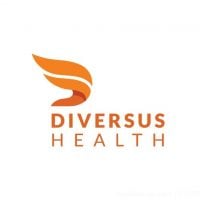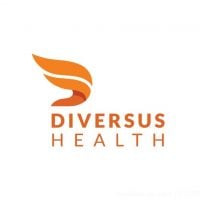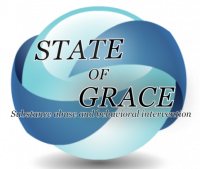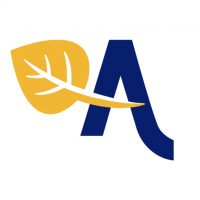Crossroads Turning Points
Drug Rehab Center in Pueblo, Colorado
- Substance Abuse
- Opioid Addiction
- Dual Diagnosis
- Alcoholism
Crossroads Turning Points is a SAMHSA-accredited alcohol and substance abuse treatment facility in Pueblo, CO, offering a range of evidence-based treatment modalities and specialized services to help individuals recover and achieve lasting sobriety.
About Crossroads Turning Points in Colorado
Crossroads Turning Points is a premier alcohol and substance abuse treatment facility located in Pueblo, CO. The facility provides an array of specialized treatment services that are designed to address a variety of addictions and mental health issues. Specialized treatment modalities that the center uses include cognitive behavioral treatment (CBT), trauma therapy, individual therapy, life skills, and motivational interviewing.
Crossroads Turning Points offers a wide range of inpatient, dual-diagnosis, aftercare support, and sober-living or halfway services. Their team of highly trained professionals strive to provide a safe, nurturing environment to individuals whom are looking to heal and have a successful recovery. The detoxification process is evidence based, individualized and managed by a board-certified medical director. Furthermore, the facility is accredited by SAMHSA, the Substance Abuse and Mental Health Services Association, meeting national standards of quality and care. With the latest evidence based treatment protocols and a focus on compassionate, holistic care, Crossroads Turning Points is an ideal facility to begin the journey of recovery.
Genders
Ages
Modality
Additional
Accreditations
SAMHSA
Conditions and Issues Treated
It’s not easy getting sober on one’s own, or even going to rehab and escaping the grasp of addiction by oneself. Substance abuse treatment gives addicts a place to stay sober while learning what it takes to quit for good. They will learn from others about what works and what doesn’t work with remaining drug-free.
Treatment centers such as Crossroads Turning Points focus on the needs of individual addicts to heal them. There is a combination of physical and mental therapies that treat the root cause of the addiction, whether it be family problems, stress, or past traumatic events.
The final benefit of substance abuse treatment is introducing new people who can help in your recovery after you leave Crossroads Turning Points. Through group therapy sessions with other addicts and attending support meetings once a day, a person will learn how to interact with others and cope with cravings. This is a chance for you to rebuild your social circle healthily after you leave treatment.
Opioid addiction starts when a person becomes addicted to legal or illegal opioids. The addiction can happen quickly, in just a matter of days. Opioid withdrawal can be extremely uncomfortable and lead the user to continue to use even if they want to quit. Stopping using an opioid requires medical observation. Sometimes inpatient treatment with a medically supervised detox is necessary for managing the withdrawal process while learning lasting tools for maintaining recovery. Medications may be used in some cases of opioid addiction.
Opioid addiction is one of Colorado‘s most prominent forms of addiction. It’s treated by detoxifying the body so that the chemicals from the medications no longer impact them and by therapies to correct behavior and target the root of the problem.
Recovery is not simply about stopping drug use. Recovery is working with addiction while recovering mental health issues that are fueling the addiction in the first place.
Levels of Care Offered
This center offers a variety of custom treatment tailored to individual recovery. Currently available are Aftercare Support, Dual-Diagnosis, Inpatient, Sober-Living / Half-Way, with additional therapies available as listed below.
Individuals who are suffering from severe addiction or have a high risk for dangerous health concerns are often recommended to receive inpatient treatment.
Choosing to enter an inpatient treatment program is beneficial for people who are suffering from severe addiction, or who have a high risk for dangerous health concerns.
Inpatient treatment is beneficial for:
- People who have a history of severe withdrawal.
- People who have attempted to overcome addiction on their own without success.
- People who have a history of relapse, or have recently relapsed.
- People at risk for drug overdose or withdrawal-related complications.
- People with medical conditions that are worsened by drug or alcohol use.
Sober living homes (abbreviated SLHs or sometimes sober houses) are temporary housing for recovering addicts. The typical SLH functions as a halfway house, providing a stable living environment for addicts in recovery. While at an SLH, residents typically meet with various therapists on site and attend regular 12-step meetings as well as other recovery group meetings.
Aftercare support should take place after outpatient treatment has ended. There are a few different types of aftercare support that patients can seek. These include 12 Step, Self-help groups (AA, NA), Therapeutic communities, Long-term, structured sober living arrangements, and Halfway houses (residential treatment centers).
Therapies & Programs
Individual therapy involves one-on-one sessions between the patient and therapist. It provides patients with a safe environment to openly discuss personal and sensitive issues with the therapist. They find the therapist as someone they can trust. Individual therapy aims to identify the core issues that would have led the patient to substance abuse and address them effectively. The therapist can develop patient-specific customized solutions through individual therapy, which aids speedier recovery.
In general, trauma therapy is a clinical process that helps individuals deal with mental stress often caused by traumatic events. The therapist helps the person identify, understand, and work through the problem. This is done with the help of talking about it in group or one-on-one counseling sessions. Therapists use relaxation, role-playing, art, and music to help the person open up about what is bothering them.
There are many different types of trauma therapists, such as psychiatric nurses and counselors. Not everyone is a good candidate for this type of therapy; it is generally reserved for people who have recently experienced a traumatic event and struggle to get over it. It is often done for children, teenage victims of sexual assault, and war veterans.
There is hope for people who are addicted to drugs and alcohol. Cognitive Behavioral Therapy (CBT) is the solution. CBT focuses on the underlying thoughts and behaviors that caused the addiction problem in the first place and may cause a relapse. This type of psychotherapy addresses negative feelings common in substance abuse disorders. It helps to change them by restructuring thought patterns. It’s about removing negative thoughts and providing long-term benefits while promoting self-awareness, self-control, and healthy ways to respond to negative thoughts. These sessions can be done by themselves or as part of combination therapy.
Since addiction is a chronic physical and mental illness, addicts need to learn as many life skills as possible. Many drug treatment centers offer life skills activities as part of their addiction recovery programs. Examples include cooking classes, employment training, resume writing seminars, parenting classes, and computer training. Life skills activities help addicts find employment, take care of their families, and give back to the community.
Payment Options Accepted
For specific insurance or payment methods please contact us.
Additional Details
Specifics, location, and helpful extra information.
Pueblo, Colorado 81008 Phone Number(719) 545-1181 Meta DetailsUpdated November 25, 2023
Staff Verified
Crossroads Turning Points Patient Reviews
There are no reviews yet. Be the first one to write one.
Pueblo, Colorado Addiction Information
The Centennial State has slipped to a ranking of 12th in the country for drug abuse. Each year around 24% of the state's population uses illegal drugs while nearly 5% of its population abuses alcohol. Substance-related deaths in Colorado were responsible for 15.12% between 2008 and 2017. Fortunately, Colorado drug and alcohol addiction treatment are available to help a person overcome addiction.
In Pueblo County specifically, there were over 2,600 individuals with a substance use disorder. Over 1,500 drug overdose deaths happened in Colorado in 2016, of which over 1,000 were due to opioids. The majority of these cases involved people of young age. Treatment for drug addiction may include behavioral therapy, medications, or a combination of both. Medications can help individuals with addictions to opioids stabilize their condition
Treatment in Nearby Cities
- Burlington, CO (145.0 mi.)
- Pagosa Springs, CO (148.3 mi.)
- Manitou Springs, CO (40.9 mi.)
- Alamosa, CO (88.9 mi.)
- Antonito, CO (113.4 mi.)
Centers near Crossroads Turning Points




The facility name, logo and brand are the property and registered trademarks of Crossroads Turning Points, and are being used for identification and informational purposes only. Use of these names, logos and brands shall not imply endorsement. RehabNow.org is not affiliated with or sponsored by Crossroads Turning Points.




